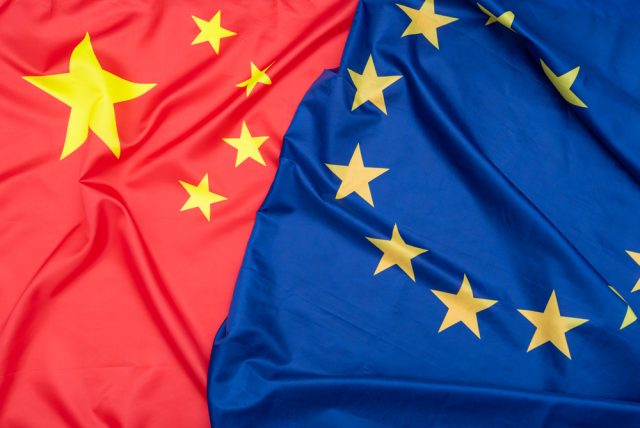
China’s recent anti-subsidy probe targeting European dairy imports has sparked significant concerns across Europe. This move, widely interpreted as a retaliatory response to European tariffs on Chinese electric vehicles (EVs), singles out Dutch, French, and Italian firms, including FrieslandCampina, Elvir, and Sterilgarda Alimenti. In light of these developments, it is crucial to assess the implications for European businesses and consumers amid what appears to be escalating retaliatory trade measures by China.
The investigation officially began in August, soon after EU lawmakers, on October 4th, voted to impose tariffs on Chinese EVs of up to 45%. These tariffs were introduced in response to evidence indicating that China was heavily subsidizing its EV sector, which allowed Chinese manufacturers to undercut European automakers. Italy, France, and the Netherlands supported the tariffs, seeing them as necessary to protect their own automotive industries, while Belgium chose to abstain. However, this decision has exacerbated tensions with Beijing, as seen through China’s swift countermeasure aimed directly at European dairy producers.
The Chinese Ministry of Commerce has specifically targeted FrieslandCampina from the Netherlands, Sterilgarda from Italy, and Elvir from France, reportedly selecting these companies based on their export volumes and diverse product ranges. China imports a significant share of its dairy products from Europe, making the European Union its second-largest supplier after New Zealand. In 2023 alone, EU dairy exports to China reached 1.7 billion euros, underscoring the critical importance of the Chinese market to European dairy producers and the potential economic impact of any disruptions in this sector.
This probe comes at a particularly delicate time, emphasizing vulnerabilities within Europe’s export-driven economies, especially when facing a powerful and strategically retaliatory trade partner like China. By targeting prominent players in the EU dairy sector, China may be sending a clear message to European leaders: impose protectionist tariffs on Chinese goods, and you will face targeted economic repercussions. The Chinese Ministry of Commerce’s focus on these specific companies appears to strategically exploit Europe’s established dairy market presence in China, raising serious concerns over whether European firms can depend on the stability of this vital market in the future.
Conservative voices across Europe have become increasingly critical of the EU’s dependence on trade with nations that do not align with European values or economic policies. With this move, China signals its readiness to leverage its economic influence in European markets to discourage what it perceives as protectionist stances. Some argue that Europe must reevaluate its dependency on foreign markets, particularly those that might exploit economic pressures to sway EU trade policies.
This situation underscores a growing sentiment among European conservatives: European Union members should prioritize economic resilience and diversify their trade relationships. Over-reliance on trade with a powerful nation like China risks compromising Europe’s long-term stability and freedom to implement protective policies without fear of economic retaliation.
In response, the European Commission has lodged a formal complaint with the World Trade Organization regarding China’s anti-subsidy probe, an unusual early move since such actions are typically initiated after an investigation’s conclusion. The fact that the EU is willing to pursue early legal action against China’s probe highlights the gravity with which European leaders view these retaliatory measures and their potential consequences for European markets.
In light of China’s anti-subsidy probe against EU dairy imports, European nations face a critical decision: whether to uphold policies that protect local industries or seek alternative trade partners to lessen dependency. This situation emphasizes the growing necessity for a robust Europe-first strategy that prioritizes economic independence and resilience. As nations consider the risks of reliance on trade with countries like China, the focus must increasingly shift toward supporting domestic markets, enhancing self-sufficiency, and reevaluating external trade dependencies.



 Subscribe
Subscribe